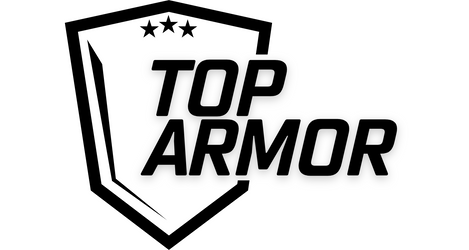
Understanding the DEA & FBI Protocols for Body Armor
Did you know that ballistic testing doesn't stop at the NIJ Standards? Today, we're delving into the specifics of two specific ballistic testing protocols: the Drug Enforcement Administration (DEA) and the Federal Bureau of Investigation (FBI) protocols. These protocols test against additional special threats commonly faced by the DEA & FBI and are tested in a manner that reflects a law enforcement setting.
DEA Armor Testing: Rigor in Layers
The DEA's approach to testing body armor is two-pronged, differentiating between soft and hard armor requirements.
DEA Soft Armor Protocol
Soft armor is subjected to a battery of tests with various ammunition types at specified velocities, including:
| Projectile | Grain | Velocity |
| 9mm FMJ RN | 124 | 1400 ft/s |
| 9mm Luger Speer Gold Dot | 147 | 1015 ft/s |
| .40 S&W Winchester Bonded JHP | 165 | 940 ft/s |
Unlike the FBI protocol, fragmentation testing plays a crucial role in the DEA soft armor protocol, with right circular cylinder (RCC) projectiles ranging from 2 to 64 grains tested at velocities to assess their V50 limits – the velocity at which there's a 50% chance of penetration.
| Projectile | Grain | Velocity |
| 2 Grain RCC | 2 | 2735 ft/s |
| 4 Grain RCC | 4 | 2420 ft/s |
| 16 Grain RCC | 16 | 2080 ft/s |
| 64 Grain RCC | 64 | 1620 ft/s |
DEA Hard Armor Protocol
The DEA Hard Armor protocol tests against additional special threats faced by law enforcement agencies today, such as steel core AR-15 and AK-47 ammo, as well as the Standard NIJ Level III round (M80).
| Projectile | Grain | Velocity |
| .223 Remington Tactical Bonded Soft Point | 62 | 2600 ft/s |
| 5.56x45mm M855 (Green Tip) | 62 | 3100 ft/s |
| 7.62x39mm Mild Steel Core | 123 | 2400 ft/s |
| 7.62x51mm NATO (M80) | 147 | 2750 ft/s |
| .308 Winchester PSPB Core-Lokt Ultra Bonded | 150 | 2600 ft/s |
Notably, the DEA hard armor protocol does not measure or limit back-face deformation like the NIJ Standard does. It also does not require any environmental conditioning or testing shots and in many respects, is the easiest protocol for a plate to pass.
The FBI's Comprehensive Soft Armor Testing
The FBI's protocol is uniquely detailed, emphasizing environmental conditioning and real-world scenarios. It involves:
- Multiple impacts with 9 mm FMJ RN "control" projectiles at specified velocities and conditions
- Additional tests with 8.2 g (127 gr) SXT +P+ bullets, emphasizing contact shots
- Conditioning tests involving extreme temperatures and submersion in water
This exhaustive process ensures that armor can withstand a variety of threats and conditions, reflecting the unpredictable nature of law enforcement work.
For those who would like to know the entire process:
The FBI soft armor protocol calls for four armor panels.
Panel #1: Six shots of 9mm FMJ then 2 shots of 9mm FMJ within 1.5" to 2" of the panel's edge.
Panel #2: Conditioned at 140° F for 14-24 hours, then 3 shots of 9mm FMJ.
Panel #3: Conditioned at -40° F for 14-24 hours, then 3 shots of 9mm FMJ.
Panel #4: Submerged 18"-24" deep in room temperature water for 14-24 hours. Once time is up, the panel is pulled from the water and immediately shot 3 times with 9mm FMJ.
After these steps are performed, Panel 2, 3, or 4 is pulled at random and shot at point-blank range with 9mm FMJ. Panel 2 or 4 is then shot with the current general-issue FBI sidearm and projectile. Finally, Panel 3 is shot at a point-blank range with 9mm SXT +P+.
Comparing Protocols: A Reflection on Standards
While the DEA and FBI protocols share similarities in their rigorous testing of soft armor, they diverge in their approach to hard armor and specific conditions. The DEA's inclusion of fragmentation testing for soft armor highlights a concern for varied ballistic threats, whereas the FBI's detailed process emphasizes environmental resilience and real-life applicability.
DEA & FBI Compliant Armor from Top Armor
HighCom Armor is some of the most extensively tested armor on the market, being tested to standards that exceed the regular NIJ Standards. With an already wide selection of NIJ Certified armor, check out the models that are also DEA and/or FBI Compliant below.
Level IIIA
- SA3100 (NIJ 0101.06 Certified + DEA/FBI Compliant)
- SA3920 (NIJ 0101.06 Certified + DEA/FBI Compliant)
Level III/III+
Level IV
